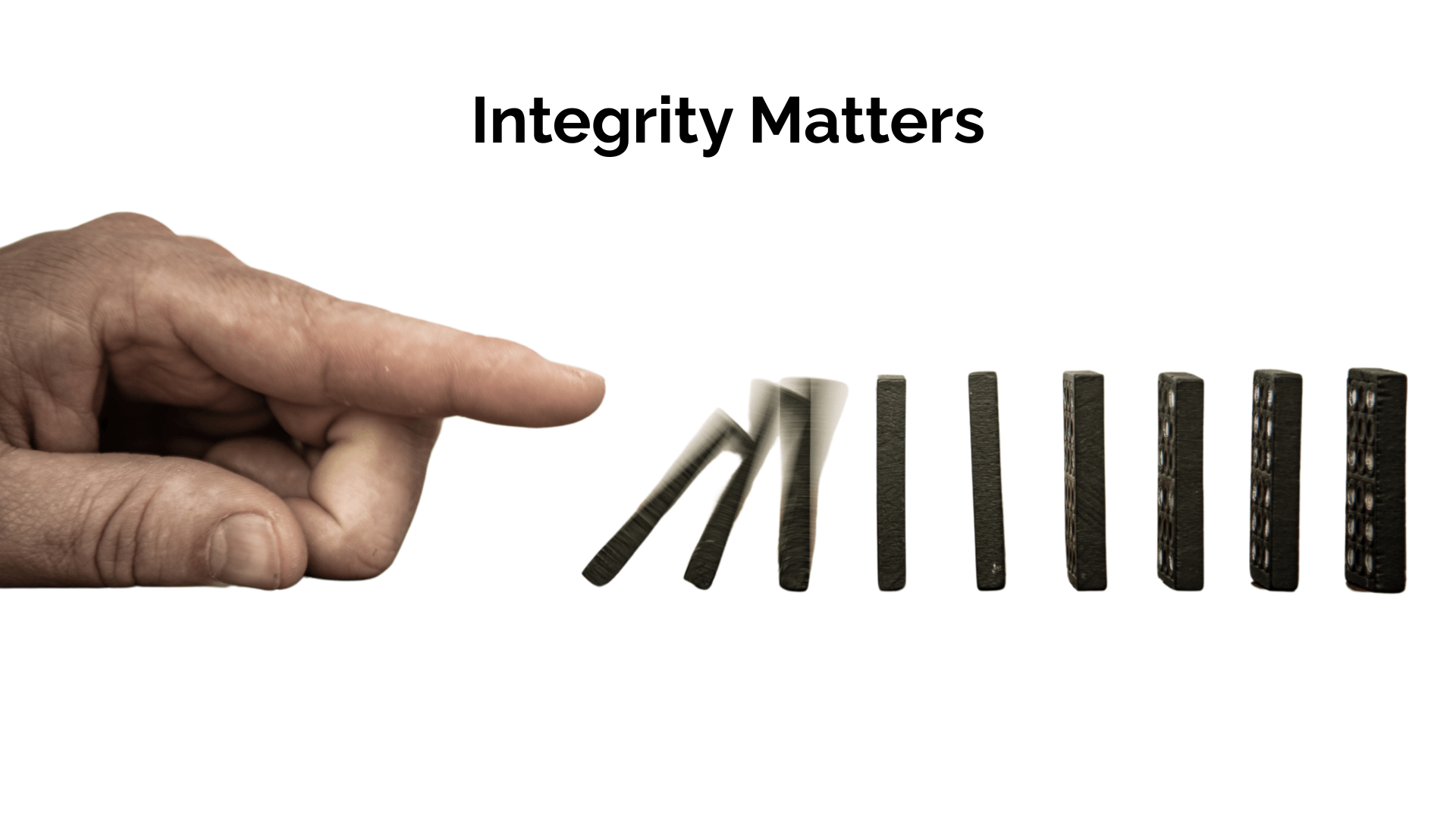There’s a saying that has stuck with me throughout my career: How you do one thing is how you do everything. I first heard this during a seminar series in New York, focused on Integrity. We were reflecting on what integrity was, and someone said it quietly—but it landed hard. It made me think about the tiny things I’d let slip, and still let slip; such as my taxes right now!
It’s a simple yet profound truth. The small actions, the tiny commitments, the things you think don’t matter—they are the foundation of how you operate in life. They are a reflection of your character, your integrity, and your ability to lead.
 The Microcosm Reflects the Macrocosm
The Microcosm Reflects the MacrocosmIf you’re dropping the ball on small tasks, showing up late to meetings, missing deadlines, or making commitments you don’t keep, these aren’t just isolated incidents. These are signals of how you approach life.
I once coached a product leader who was leading a team, that was refusing to put on their camera's. Only he had his camera on. That is a team not operating with integrity, esp given that 70% of communication is non verbal. Our facial expressions and body movements communicate, as do feelings, but all of that is now shutdown and hence that team's communication is not flowing. You have to work twice as hard verbally. Secondly, the leader themselves had not established any team agreements that clarify expectations from each other, which builds trust and establishes psychological safety.
You may tell yourself, Oh, it’s just one email I forgot to send, or It’s just one meeting I was five minutes late to. But zoom out, and you’ll see a pattern. These small cracks in your discipline and accountability expand into larger gaps in your effectiveness, your credibility, and your ability to lead.
Excellence isn’t a switch you flip when the stakes are high. It’s a habit, a practice. The way you do the smallest tasks reflects how you’ll handle the big ones. If you can’t be trusted to honor the little things, how can you be trusted with something greater?
We are all, always out of integrity; there is always something that we drop in life, our work habits, our financial habits, our fitness & health habits, our hygiene, our relationship habits and on it goes, but we also practice bringing integrity back into our lives; staying fit, saving, delivering on our agreements at work, etc. Constantly working on bring integrity back into all of your areas in life are key.
Integrity and the Power of Your Word
The most powerful asset you have in life and leadership is your word. When you say you’ll do something and then follow through, you build trust—not just with others, but with yourself. Every time you break your word, even in small ways, you diminish your own sense of self-respect and capability.
Recently, I told myself I’d start training again. It felt minor. But each time I skipped it, I didn’t just lose a practice—I lost trust in myself. I let myself off the hook. When I finally stuck to it for 30 days, I noticed a huge shift in how I felt, walking up steep escalators & stairs felt easy; doing 4 workshops in a week was a breeze.
On the flip side, when you honor your commitments, even when they feel minor, you strengthen your own sense of agency and power. It is a positive feedback loop that reinforces your behaviours and has you feel good about yourself, which further motivates you. When you let yourself off the hook in relationship to your commitments, you feel bad and that is when the spiral down happens.
Think of accountability as the structure that holds up the power of your word. Without it, your words become meaningless. With it, they carry weight. People listen. You gain influence. And most importantly, you become someone who can trust themselves to follow through on their own goals and aspirations. Remember, influence is what you have when you walk into a room and say nothing at all. You build it over time, through your word, attitude, expertise and more.
Commitment Is the Key to Growth
Psychologists and motivational theorists have long studied the impact of commitment on personal transformation. Self-Determination Theory (SDT) tells us that autonomy, competence, and relatedness are the pillars of motivation. When you take full ownership of your commitments (autonomy), do them well (competence), and honor them in relation to others (relatedness), you create a deep sense of fulfillment and purpose, you build trust and your influence grows.
At McGraw Hill, I took on a work that no one else really wanted at the time. I didn’t have to—but owning it gave me a sense of agency I hadn’t felt in months. That stretch built trust with peers and deepened my confidence and it opened up my career and rove me to unexpected heights.
Conversely, when you avoid responsibility, break commitments, or let laziness creep in, you disconnect from your own sense of power. Relationships become forced. You start to feel like life is happening to you instead of being driven by you.
What This Means for Leadership
As a product and leadership coach, I see this pattern play out often.
One pattern I see often? Product leaders who deliver amazing strategies & roadmaps but struggle to follow through on stakeholder promises & communication. Their stakeholders stop trusting them—not because of bad intent, but because of missed micro-commitments & no communication.
People wonder why they’re struggling to gain traction in their careers, why their teams don’t respect them, or why they can’t seem to move the needle on big goals. More often than not, the root cause isn’t a lack of intelligence or talent—it’s a lack of discipline in the small things.
So, if you want to lead, you must first lead yourself as you are a role model. And that starts with:
- Doing what you say you’ll do, no matter how small.
- Being on time—not just physically, but mentally and emotionally present.
- Following through on tasks, no matter how mundane.
- Holding yourself accountable instead of making excuses.
- Doing the inner shadow work in order to be able to identify and regulate your emotions & triggers
These micro-movements of integrity, shape who you are as a leader and as a person. They determine whether people trust you, whether they follow you, and ultimately, whether you succeed.
The Challenge: Start Today
I challenge you to audit your commitments—both personal and professional. Are you someone who follows through? Or do you let things slip, thinking they don’t matter? The truth is, they do. Every little action is a vote for the type of person you are becoming.
I did this audit myself last month. I realized I was saying “yes” to too many things and dropping the ball on creating other content & my own paperwork. I’ve since started blocking focus time every Friday—and I’m already seeing the benefits.
So, honor your word. Follow through. Show up fully. Because how you do one thing is how you do life. And that’s what truly sets great leaders apart.


0 Comments